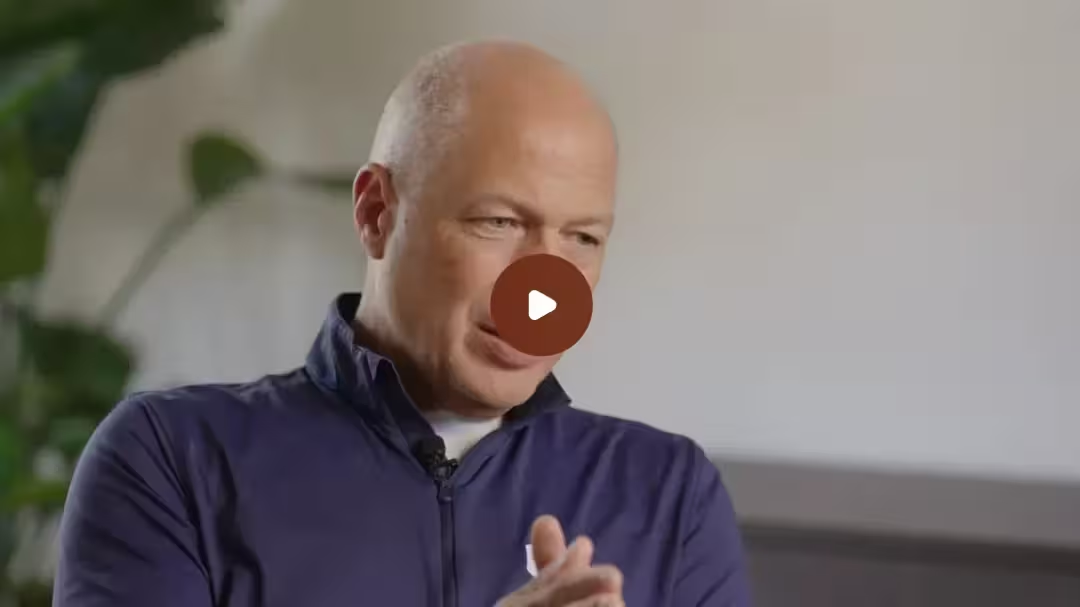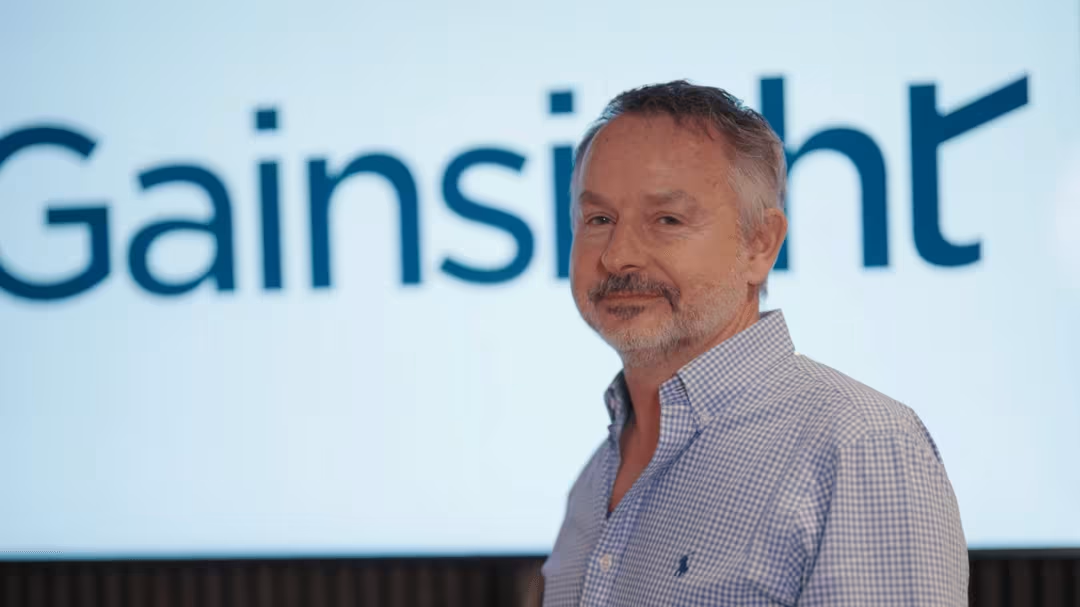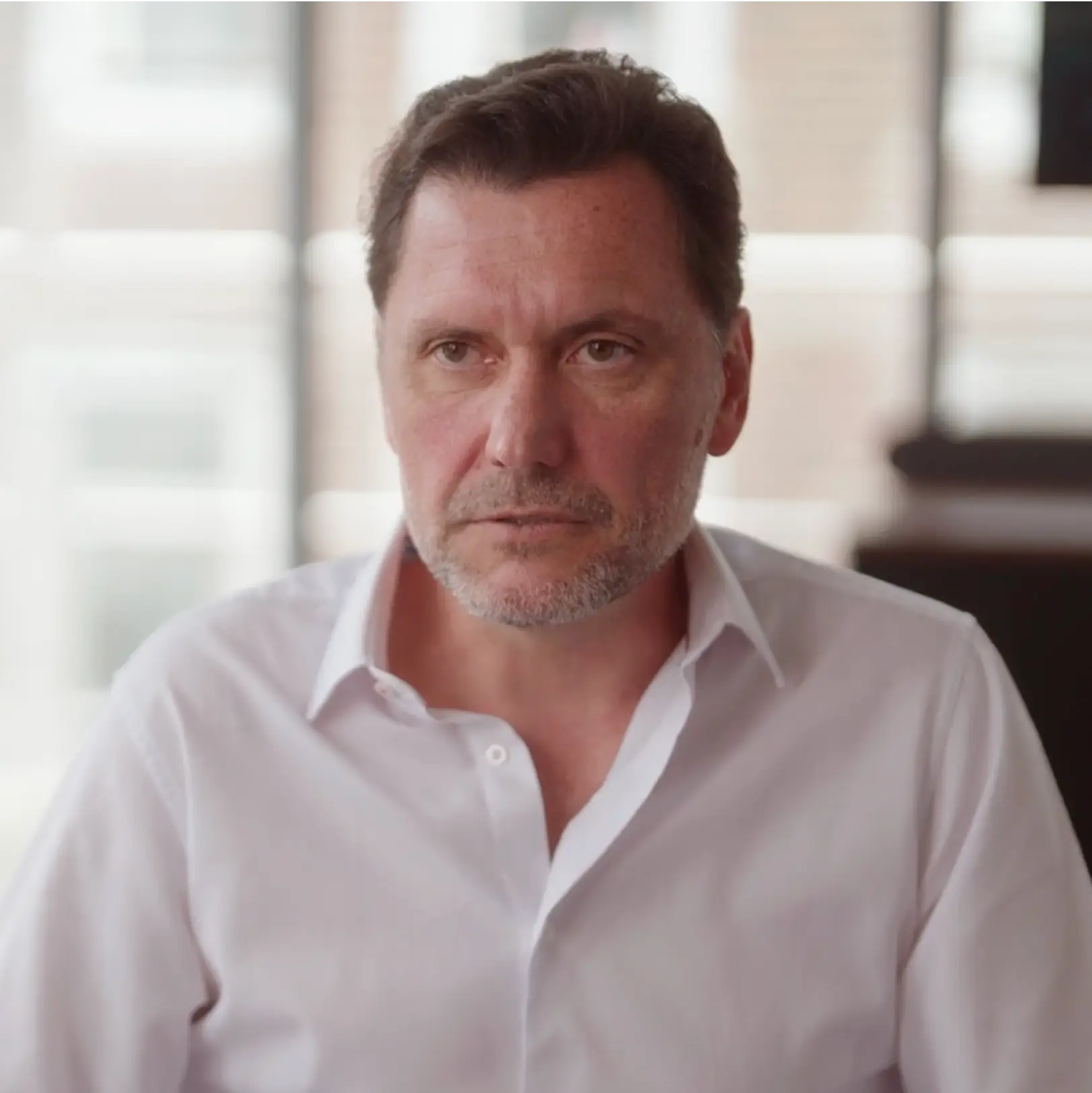The Interview
Kluster's Take
Theo spoke with Abhishek Jha, Co-Founder & CEO at Elucidata. Abhishek had a successful career as a scientist, before founding Elucidata. Their mission is to deliver curated biomedical molecular data for machine learning applications.
Abhishek’s passion is to help customers with a critical pain point. He loves to share the vision of Elucidata with investors. Abhishek sees many parallels between raising a child and a start up.
One of the biggest challenges is picking a path when you first start the company. There are many options, but that decision is critical. Abhishek admits that his role tests his comfort zone. Yet makes a commitment to continually push beyond it.
If Elucidata’s vision inspires you, they are hiring for an Account Executive position.
Transcription
I would make it a point to celebrate even the smallest men. You also get a lot of setbacks along the way. It's time to learn from that is also helpful because those are the things that help you. Six months later, you're stronger and wider.
So I was Shaq waltz was lifelike for becoming the CEO of elucidate. First, let me thank you to you for having us. This is a great platform and we are happy to be part of it. I also appreciate your patience and flexibility as we are trying to put this on our calendars. So a life before a few of listening.
So it has not seen it for one, um, you know, uh, but, um, Uh, this last six years, as you have been making, I've been living a dream. It's so exciting to convince really talented folks to come and join us on our mission. Um, you know, convince our investors to come and join our mission. And also it went to the, uh, the customers right there where we are helping them with a very critical pinpoint, uh, before, uh, in this data scientist, uh, at.
My entire formal training has been that of a scientist. Uh, I did my PhD at, uh, uh, the university of Chicago and then a postdoc at MIT. And soon after, towards the end of my, you know, the near term, it, uh, I learned about the small biotech, um, actually through a friend who was consulting for a company, uh, not, not very far from MIT, um, are just pharmaceuticals.
Uh, at the time they were very small way early by promising Burdick. I took up the role with them. I'm leading the data science team, uh, in the platform group. And, uh, it was an incredible five and a half years for me. Um, Among other things, you know, I hung out with a very talented scientists with different background expertise and, uh, what does, uh, it can be satisfying, uh, was that, you know, the team was able to bring two first-in-class drugs, uh, to the patients or, uh, acute myeloid leukemia.
And they have both been now approved by the FDA. Having had a chance to play a very tiny role in that entire journey was incredibly satisfying. And you could see that, you know, all the papers that you read or papers that you wrote for that matter would translate into helping, uh, you know, an individual and the families in such a profound way.
It was, um, something, you know, cellular and. Uh, just give me that opportunity. And, um, I could also see, uh, as how someone with my skillset. How they can impact, you know, uh, the journey of therapeutics company and eventually how that would help patients. And, uh, what were the, what is the promise of it? What were the limitations of it?
How does it fit in the ecosystem? And, and I just was a very good experience, um, to learn all of that. And, um, privately the company was in a very different place. I was in a different. Yep. And, um, based greatly on my own experiences as scientists, which by no means were unique. Um, I thought there's a need in the market that we can help a lot of other scientists like me, uh, who were helping, you know, therapeutics companies and, uh, eventually patients who are waiting for therapy.
And that, I mean, you know, I had a sense of urgency about that, which is why I taught start. Like, that's a great story. I really appreciate sharing that with me. Well, with the community as well. Um, I guess, uh, you know, uh, first question would be initially, what were the biggest challenges you faced, uh, when you started Lucy taser?
Yeah, I think there's always. Uh, a different phase, like, you know, companies have their own lives and, uh, I'm also a young father. So I see a lot of pain, a little bit raising a child, a son in our case and, um, you know, starting a company and, uh, In the early days, like, you know, we had, um, me and my co-founders, we had a choice to make a one apart, which was, uh, you know, none of them are easy, but they have their own pros and cons one part was to go out and raise funds to build a product.
Um, and you know, we were, we would have been, we are, you know, first-time founders, so that would not have been easy. Uh, we were trying not, we were not for example, in, uh, trying to make a drug and I was in Boston. So in Boston, like, you know, unless you have therapeutics at the end of your complaint name, like how to get any attention from the talent pool or the reasons or anything like that, that was more or less still the, not, not, not so much.
The media. Um, so that was part one, right? Like to go out and do some parts, build a product, release it to the market. Uh, and the other part was, um, you know, just get out of the market. I had a thesis and, you know, it was something that I had cooked up, uh, based on my own experience. As scientists, I would always put a question mark, like, is that real legs that sharing shared by my colleagues and that thesis, we thought, okay.
The other part is this bringing to the marketplace, let's talk, working with, um, um, eventual customers, right. Um, and, uh, have been, not just pay for it, but also give the feedback to tell us, like, where is that, you know, real clear pain point for them. Where we could help them. And, uh, of course, you know, they could pay us.
Right. And that, that is the path that we chose again, that was hard in its own way, but it was also helpful in some ways where, you know, we started getting paid almost right away. Right. We had, um, revenue positive, uh, pretty much on day one. And, um, uh, and then, you know, uh, it also gave us, um, A little bit of breathing room.
As a first time founder, I was learning a lot of things. My team was building a team. We had no band. We barely had a website, uh, in early days, like trying to convince, you know, uh, friends and families or colleagues to come and join us in some shape and form as, uh, uh, an angel investor or as a customer or as an employee, like, uh, Um, a lot of, you know, work.
Um, there's also, it also give, would give me a lot of hype because anytime you've convinced someone, right? Like, you know, often these guys are very talented. They get, they have multiple options, right. Um, uh, be the potential employee, be the potential customer
to be able to convince that person at that moment, that next two years of my life I'll give it to you. That was. Uh, reward and, um, the good news is that, um, even when I look back, which has not been a long time and we are very much still in this process, I don't think, I mean, to communicate that we have arrived in any shape or form yet, um, every week was better than the last one.
And, uh, I would, I remember that, um, I would make it a point to celebrate, um, even the smallest. Which in hindsight looks silly and ridiculous. I remember we got our first NDA, uh, which was, it was a pretty benign documentary, anyone, and everyone says your name the more or less, but I remember, uh, we had a big, you know, celebration with, uh, my co-founder and my wife, um, that did not lead to anything at all.
But, you know, it was a good thing to kind of celebrate that. And, um, and, and you also get a lot of setbacks along the way. Um, this came to learn from that is also helpful because those are the things that help you. Six minutes, six months later, you're stronger and wiser. And a year later you have some idea of some scars issues and you know, you you've learned your lessons.
So, yeah. Um, well, it is a very different way, fine, but, um, again, um, I think they've come a long way, but we have so much more. On south state, you mentioned, you mentioned pain points there, and I think that's an interesting way to go. I think a lots of companies, right? They'll, it'll take them quite a long time to actually find a real pain point in the market that they can really leverage.
How quickly, if you have a shack, did you find that, that pain point where it was like, okay, this is, this is something that is going to be fit for purpose. And how much was it just developing? Making the making everything spots on it. And that's the word? Yeah. And that's the hardest part of, I think, any product company, right?
Um, defining that, but you know, in some other languages be labeled as product market fit, some pain point that you find, which people are willing to pay for hopefully enough to make a sustainable, large integrator and hopefully enough of, uh, you know, users and customers are out there with that same pain point.
And that's that. Um, it's hard because, you know, as a scientist or as a, as a user, you see yourself great. You have a thesis that you think this had been printed, you might be in the neighborhood, but finding the right, you know, you know, like if you're a group, like, you know, find the right point, right. But that specific point where you press on it and you get to respond to that, you can get the emotional, very visceral response from your personal, that, that is hard.
Yeah, that requires, it requires a lot of back and forth that requires a lot of, um, deviations. And I think, uh, we took our own sweet time, right. Uh, so, you know, we spent first two years, uh, just, you know, building the product in the market. Uh, then we did a small seed round and then, uh, you know, we launched the product 10 months later and, um, it took us a while to get to that exact pinpoint, which we saw a consistent.
Oh, this is the same pinpoint for someone else or someone else. And you start reading that pattern and it's not easy because you know, you're getting a lot of signals from the market, right? The customer pulling in 20 different directions and you have to really spend your eyes, parse the signal. And you know, at some point you back yourself up, oh, I'm on the right track.
And two months later, or two weeks later, you will trigger your not, and then you. Step back and do it again. Right? So that process, I think, took us a good temp of time. Um, I think most of our time has been just to figuring that piece out and the good part in the facility part is that for all those, uh, you know, months and years we were in the same neighborhood, you think that you're there and then, you know, no, not really.
And then, you know, he tried to get, and again, And when it is when you find it, you will know because it just, you know, yeah. I guess, I suppose it's a, it's a constant trial and error. Right. Um, and so until you get that, yeah. And as a first-time founder, like, you know, and I've seen this, I see this in a lot of what I consume on LinkedIn or, um, there's, there's no shame in, um, not knowing what that is on day one or even day 2 65, right?
Like it's, it's always. Fantastic. And, um, yeah, also, I guess another question here, uh, I always like to ask this one, what are some of the challenges of the role that may not be so obvious as a CEO? Um, that's started on angel investing in, grew up, or some of the challenges that maybe other CEOs in cancer, but aren't so obvious to the rest of the people who aren't in that.
So, uh, I think for me, what has been a, really a part of this and then meaning, right? Like I tell this to my friends and colleagues or anyone who would listen to me, this is the best self-improvement project that I would have signed up for. Like, you just, you just don't have a choice. You have to handle things like things that are way outside your comfort zone.
As a scientist, you know, things that are outside of my comfort zone is like what most, everything, the only few things that you specialize over many years and you know, that you're comfortable there, but anything outside is like, you know, even a different scientific area for that matter is outside my comfort zone.
So yeah, for me, I just put myself out there to do all of this and, um, what is lost the, you know, Consumes your mental space completely exhausting. I can't stop it. And again, from better risk and that comes at the cost of your friends and families, like did they have to support all of that? And, uh, they have, uh, you know, uh, in some ways the unsung hero of entrepreneurship where.
I'm not as accessible to my wife or my siblings or my parents, you know, as I, as I should be, perhaps I would have been in a different role. Um, it's very consuming, um, which is also fun. It gives you a lot of Heidrick and, uh, even prayer, like when I was doing my PhD or postdoc, you know, uh, scientific questions that the graduate student in, you know, um, an ID or Iowa, or, you know, Uh, Zurich would be solving this thing, right.
It consumes them. Right. You think about that? You're taking a shower and all about it. Um, but this is quite something different because you're dealing with people, right? Uh, again, your team, you're happy once you have hired them, you know, you don't have to worry just about the salaries, but also it could for the way, hope.
After spending five years with visitor, they would have more options and possibilities ahead of them. I, with the investor right after they give you their funds and capital and the advice and the expertise, you hope that you give them more than that and your customers most importantly. So, um, uh, the kind of mental, um, space.
That this idea you say there has occupied, uh, has been really satisfying, but also very demanding and to make sure that they have enough of a support system, um, to, to do that because it it's hard. It's also fun, but it's, it's, uh, I'm really lucky to have that kind of support system. Awesome. And I assume it's similar question here to, to end this segment is.
We always have. And with this question here is if, if, if you were sat in a room full of CEOs, what would he, one piece of advice that you would share with them? If I was doing what so that they can sat in a room full of other CEOs, fellow CEOs, what is one piece of advice you'd share with them that would add value?
We've kind of touched on it there, but is there anything else you would say, if you could say. Um, what kind of advice I would share with other teams in the room? Is that in a similar sorts of positions? So I have been in such rooms and, um, but, um, I think, you know, it's very helpful, like the, some, um, Comfort and pleasure in, uh, living through some months, someone else has experienced that it is good to know that others have had the same problem or the same struggles and same highs right along the journey.
So it helps us, helps me a lot. What I would tell them is, uh, also, you know, uh, this goal is looking lonely, right? That's something that you can share or, you know, Uh, with a new co-founder at times, or your family, they get sick and tired of hearing the same thing all the time. And, um, it's a lonely job and it's okay to be, you know, um, do acknowledge that you don't know, you're trying to figure it out as well.
And, um, whenever I have been, uh, transparent or candid to a level that, um, you know, would be perhaps surprising in a situation. Uh, people around me have responded with, and, and, uh, that's my team. That's my support system. That's our customers, that's our investors. And one recent, uh, you know, situation was not quite, you know, part of it.
It was in, um, April may, but, uh, the, the COVID, uh, you know, second wave or third, I don't forget to come India really hard. And a lot of our team members are in India. And it was just like, you know, something that no one someone could have planned for it. We could talk, we did not. And, uh, the impact was very visible, very disappointing and, um, very severe.
And, um, I think I was going through a lot at that point. I was very candid, very transparent. Um, And my making this one did amazingly well to that. Uh, everyone stood up, tried to take care of their colleagues and the community as best as they can. Our customers, you know, um, showed up, raise their hands. They had the spread a lot, all the way from, you know, suspending every deadline to, uh, sending cards and wishes and.
Messages, uh, administers were like super supportive. So I think, you know, you'd expect the stereotype of what is in the mainstream media is about CEOs being this alpha tough, you know, someone who knows it all, all the time, not true, at least in my experience, right. For whatever it's worth. And every time I've been more transparent, more vulnerable and shared that my, my, my.
People around me have responded very well to them and have benefited from that I've learned from it. And I hope we were in a better place. Uh, and then of course, That's a great point. And it sounds like elucidates house has a great culture there of a shack. And if that's the, almost a perfect segue into, you know, I understand that you're hiring for some awesome roles right now.
So if we just jump into those quick teams in your eyes, what's needed to sell into multidisciplinary research and development teams, other shack. Yeah. So again, we're heading a lot. We're growing rapidly. We have, um, you know, I think this quarter alone, we have made 42 offers. Uh, I learned about this this morning and, and EAs are also what we are hiding.
Um, they are really, you know, at the frontline of, you know, driving the growth of the company. Um, let's like any other role that I, uh, we have been very clear that, you know, Th the customer's interest first and in, in, in my role, as it was in founders, you who was responsible for selling as well. Right. Um, I learned a lot about what fields is not.
So sales is not making things up. It's not talking, it's not, in fact it's exactly the opposite things and that's more true in B2B enterprises. With a mini stakeholders. It's not a one-time thing. It's not a
one time transaction rate. Um, and a lot of businesses like that, which I'm sure we'll be doing good, but this is a different piece. Right? So being very transparent. Educated about what we can do and what we cannot, uh, and how our technology can help. Uh, if we can put the customer interests front and center and everything around is dictated by that, I think, uh, they will do it.
Fantastic. Last question on that is how essential is a life science background here, um, based on the product that you see. Um, not a whole lot, I think, uh, it's nice to have for sure, but what I have learned, uh, and again, um, from my own experience and, um, consuming podcasts like these blogs is, uh, the average selling price, like as to what is the dollar value that you have sold, that is a better indicator of, uh, how you will do in a role like this or any.
Then the particular space. So if you have been selling a million dollar contract, I think you will do fine in any industry that is selling any rule that is selling million dollar contract, 10,000 is a different beast. You know, $10 is a different beast. Uh, 10 million is a different beast. So I think that to me, is it more transferable, um, variable then?
Do you have a PhD in life science or not? Because guess what? At the end of the day, uh, you know, scientific expertise is not. Even after spending 15 years doing one thing, you know, my colleague on the same floor doing something else, I'm completely novice to that. So I again, have to listen to them and understand from very basic person who wants to learn what their talents areSo your ability, you know, if they're listening even better, So, um, so, so I think those are the more common thing. Things that I believe are traits that are more transferrable than, or if you have sold to same customers, you know, or not.


.svg)
.svg)
.svg)
.svg)










